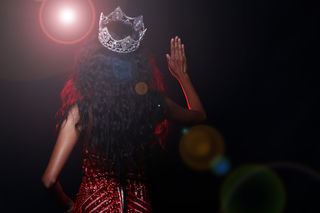Beauty
#TimesUp for Beauty Pageants
In a #MeToo era, the beauty pageant culture needs to change.
Posted May 7, 2019

Recently, beauty pageants have been in the news as Miss America, Miss USA, and Miss Teen USA are all black women. While that is noteworthy, what was striking was the public acceptance of these competitions in general considering the #TimesUp and #MeToo movements. Pageant organizations state that they have evolved as women in society have evolved. For example, Miss America removed the bathing suit competition and gives women the ability to choose evening wear that is suited to their own personality. According to the Miss America website: “[in this year’s Miss America pageant] ... the candidates ‘voices were heard more often and more clearly! Throughout the competition, candidates had more opportunities to advocate for their social impact initiatives and to demonstrate how they are uniquely qualified for the exciting and challenging 365-day job of being Miss America.” However, Miss USA maintained the swimsuit competition. Despite the very impressive credentials of this year’s Miss USA winner (She is a civil litigation attorney who does pro bono work to reduce sentences for inmates and has an MBA), she was still paraded in front of the judges in a bikini to be evaluated. While some may argue that a much greater emphasis is being placed on what these women have to say and their accomplishments, the fact remains is that these women are at least in some part being selected and/or evaluated based upon their physical appearance.
While beauty pageants or competitions have been part of American culture for nearly a century, given the recent focus on #MeToo and #TimesUp, they may no longer be relevant. Consensus among sexual violence prevention researchers has been that in order to prevent sexual violence there must be cultural change. Regardless of recent efforts to make them more about substance, at some level, beauty pageants/competitions sexualize women. Sexualization of women has consistently been linked to greater support of sexist beliefs and increased tolerance of sexual violence toward women. Further experimental studies in which some subjects were exposed to content highlighting the sexualization of women and others were not, find that those who view sexualized images have decreased views of women’s competence, morality, and humanity. Dehumanization of women is related to increased risk of sexual violence.
Further, beauty pageants highlight that men and women are treated and judged differently. We do not have male beauty pageants or competitions where men are being evaluated on how they wear their suits, and their ability to answer a question. One thing that research has consistently found is that egalitarian gender norms – or beliefs that men and women should be treated and evaluated equally - decrease the risk for sexual violence. Studies show that in order to change harmful gender norms and unequal power between women and men on a societal level we must implement strategies that impact communities and institutions - such as beauty pageants. Despite the recent changes to these organizations have made to give them more of an appearance of female empowerment, at their core they still sexualize women and promote gender disparity. Thus, if we as a society are committed to culture change in order to create a world without sexual violence, a good step would be to abolish female beauty pageant competitions.
References
For more information, see: Jeglic, E.J., & Calkins, C.A. (2018). Protecting you child from sexual abuse: What you need to know to keep your kids safe. New York: Skyhorse Publishing.


